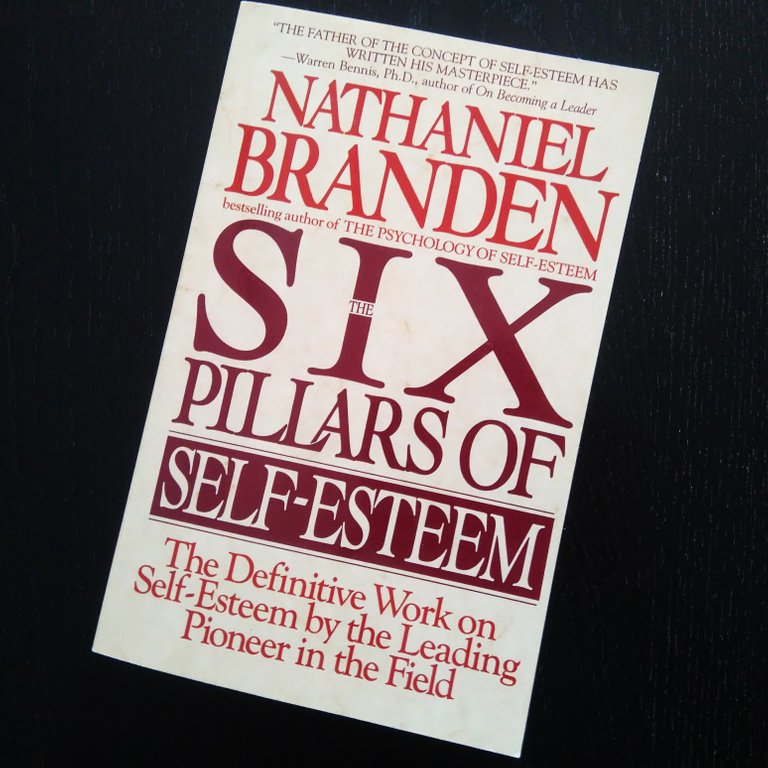
Self esteem creates self fulfilling prophecies.
To trust one's mind and to know one is worthy of happiness is the essence of self esteem.
We tend to feel most comfortable with people whose self esteem level resembles our own.
High self esteem is the best predictor of happiness.
The tragedy of many people's lives is that, given a choice between being "right" and having an opportunity to be happy, they invariably choose being "right".
It would be hard to name a more certain sign of poor self esteem than the need to perceive some other group as inferior.
Self esteem creates a set of implicit expectations about what is possible and appropiate to us. These expectations tend to generate the actions that turn them into realities.
With low self esteem we tend to be more influenced by the desire to avoid pain than to experience joy.
If my aim is to prove I am enough, the project goes on to infinity because the battle was already lost on the day I conceded the issue was debatable.
We must become what we wish to teach.
Sentence completion work.
6 pillars:
1. The practice of living consciously
Only context can determine what mind state is appropriate.
2. The practice of self acceptance
When we fully experience and accept negative feelings, we are able to let go of them.
-1. Being on my own side
-2. Willingness to experience
-3. Being a friend to myself
If the feeling is so overwhelming that we think we cannot accept it, we should accept the resistance to it first.
Acceptance of what is, is the precondition of change. Denial of what is leaves me stuck in it.
3. The practice of self responsibility
If I am unwilling to take responsibility for the attainment of my desires, they are not really desires: they are merely daydreams.
4. The practice of self assertiveness
- Assertion of consciousness
- Be commited to my right to exist
- Develop and fight for your ideas
- Confront rather than evade the challenges of life
5. The practice of living purposefully
Leave hoping and wishing for children.
- Take responsibility for formulating your goals
- Identify the actions necessary to achieve your goals
- Monitor your behaviour to check that it is in alignment with your goals
- Pay attention to the outcomes of your actions to know whether they are leading where you want to go.
The root of our self esteem is not our achievements but those internally generated practices that, among other things, make it possible for us to achieve.
6. The practice of personal integrity
Make the child feel visible.
Avoid criticizing but also avoid positive praise, this creates anxiety, dependency and expectations in the child.
Instead make the child come alone to the conclusion that he is good by describing his actions and thanking him.
The more precise the praise, the better. A generalized and abstract praise will leave the child wondering.
Criticism should be directed only at the child's behaviour, never the child. Method: describe the behaviour, describe your feelings about it, describe what you want done and omit character assassination.
A child who does not feel accepted by parents if he or she makes a mistake may learn to practice self rejection in response to mistakes. Consciousness is muted, self acceptancec is undermined, self responsibility and self assertiveness are suppressed.
It is more desirable to stimulate the search for answers than to provide answers.
Physical reality tends to be far more "reliable" than most human beings. Consequently, children who feel ineffective in the human realm often turn for a sense of power to nature or machinery or engineering or physics or mathematics, all of which offer a degree of consistency and "sanity" rarely found among human beings.
Need for structure.
One of the freatest giftd a teacher can offer a student is the refusal to accept the student's poor self concept at face value. This is accomplished in part by making the student aware of choices and options the student had not noted and by breaking problems down imto samller, more manegeable units.
Classroom:
- Child's dignity, take the child seriously
- Justice
- Don't only focus on weaknesses, focus on strengths too
- Attention
- Discipline: motivate vs being authoritarian
The successful organization of the future will be an organizatiom geared on self esteem.
Praise in public and correct in private.
Unrecognized or disowned and rejected subselves tend to become sources of conflict, unwanted feelings and inappropriate behaviour.